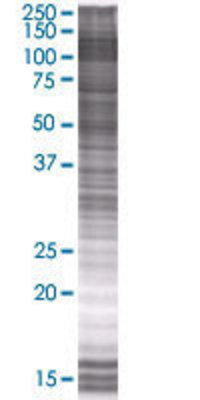| Gene Symbol |
DPP4
|
| Entrez Gene |
1803
|
| Alt Symbol |
ADABP, ADCP2, CD26, DPPIV, TP103
|
| Species |
Human
|
| Gene Type |
protein-coding
|
| Description |
dipeptidyl-peptidase 4
|
| Other Description |
ADCP-2|DPP IV|T-cell activation antigen CD26|adenosine deaminase complexing protein 2|dipeptidyl peptidase 4|dipeptidyl peptidase IV|dipeptidylpeptidase 4|dipeptidylpeptidase IV (CD26, adenosine deaminase complexing protein 2)
|
| Swissprots |
Q53TN1 P27487
|
| Accessions |
AAB35614 AAB60646 AAX93179 CAF33874 CBX53886 EAX11361 EAX11362 P27487 AB451339 BAG70153 AB451488 BAG70302 AK314798 AY429531 AY429532 AY429533 BC013329 AAH13329 BC065265 AAH65265 M74777 AAA51943 M80536 AAA52308 X60708 CAA43118 XM_005246371 XP_005246428 NM_001935 NP_001926
|
| Function |
Cell surface glycoprotein receptor involved in the costimulatory signal essential for T-cell receptor (TCR)-mediated T-cell activation. Acts as a positive regulator of T-cell coactivation, by binding at least ADA, CAV1, IGF2R, and PTPRC. Its binding to CAV1 and CARD11 induces T-cell proliferation and NF- kappa-B activation in a T-cell receptor/CD3-dependent manner. Its interaction with ADA also regulates lymphocyte-epithelial cell adhesion. In association with FAP is involved in the pericellular proteolysis of the extracellular matrix (ECM), the migration and invasion of endothelial cells into the ECM. May be involved in the promotion of lymphatic endothelial cells adhesion, migration and tube formation. When overexpressed, enhanced cell proliferation, a process inhibited by GPC3. Acts also as a serine exopeptidase with a dipeptidyl peptidase activity that regulates various physiological processes by cleaving peptides in the circulation, including many chemokines, mitogenic growth fact
|
| Subcellular Location |
Dipeptidyl peptidase 4 soluble form: Secreted. Note=Detected in the serum and the seminal fluid.
|
| Tissue Specificity |
Expressed specifically in lymphatic vessels but not in blood vessels in the skin, small intestine, esophagus, ovary, breast and prostate glands. Not detected in lymphatic vessels in the lung, kidney, uterus, liver and stomach (at protein level). Expressed in the poorly differentiated crypt cells of the small intestine as well as in the mature villous cells. Expressed at very low levels in the colon. {ECO:0000269|PubMed:1677636, ECO:0000269|PubMed:18708048}.
|
| Top Pathways |
Protein digestion and absorption
|

![Western Blot: CD26 Overexpression Lysate (Adult Normal) [NBL1-09997] Left-Empty vector transfected control cell lysate (HEK293 cell lysate); Right -Over-expression Lysate for CD26.](http://www.bioprodhub.com/system/product_images/cel_products/5/sub_2/5517_CD26%2520Overexpression%2520Lysate%2520(Adult%2520Normal)-Western%2520Blot-NBL1-09997-img0002.jpg)